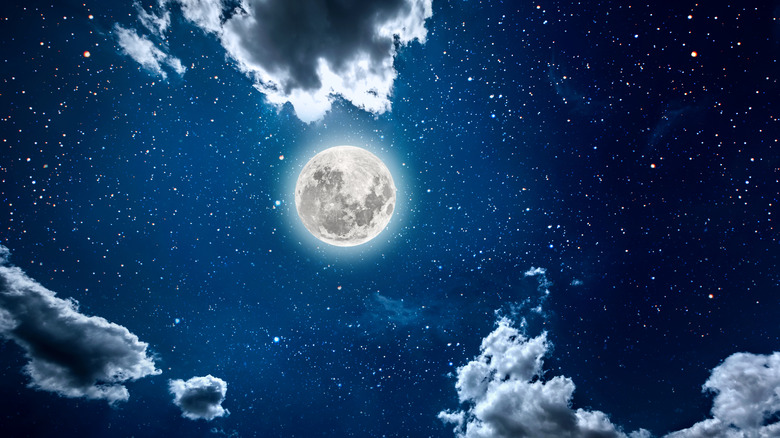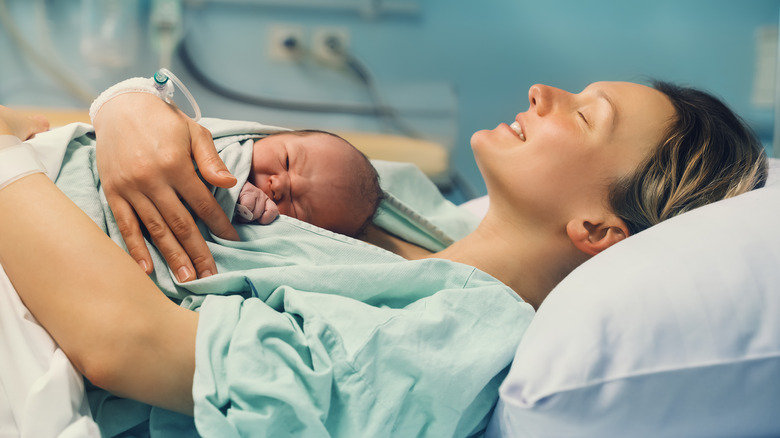How A Full Moon Might Affect You When You're Pregnant
The moon and its cycles have fascinated people for millennia. Countless phenomena have been attributed to the full moon in particular. For example, the word "lunatic" dates back to the late 13th century and derives from the Latin word for moon, reflecting a long-standing belief that the full moon caused "periodic insanity" (per Online Etymology Dictionary).
The perceived effects of the moon on humanity are not just mental but physical, with many people believing that lunar cycles affect not only menstrual cycles but even pregnancy. Some research suggests this may be true. A 2010 study published in Environmental Health Insights found that among 1,007 births occurring between 1966 and 2000, many took place when the gravitation of the moon to Earth was less than 31.5 degrees, suggesting that the moon's gravitation may have an impact on the frequency of births. Also, a 2005 Nepalese study published in Nepal Medical College Journal claimed that people who conceived around the full moon were more likely to have boys, while people who conceived around the new moon were more likely to have girls.
Finally, Healthline describes a 1977 study that suggested that people who started their menstrual cycles during the new moon were more likely to get pregnant than people who started their cycles during other moon phases, including the full moon. All of this said, there are many studies that refute correlations between birth rates and lunar activity.
Many studies refute the childbirth and full moon connection
The largest study performed on the topic by Appalachian State University examined 70 million births in the United States and found no significant correlation between birth rates and the full moon. A 2005 study from the American Journal of Obstetrics and Gynecology cited 564,039 births over 62 lunar cycles but found no connection between birth rates and the full moon and concluded that the alleged influence of the moon on childbirth is a myth not based on evidence. A number of other studies from different countries have reinforced these findings (per Baby Center).
Many people would pin the lack of the moon's effects on birth rates to artificial light, but a 2019 study published in the European Journal of Obstetrics & Gynecology and Reproductive Biology found that of nearly 24,000 births in rural areas between 1810 and 1929, there was no correlation between lunar cycles and birth rates. The study concluded that the moon has no effect on childbirth, even in the absence of electricity and artificial light.


